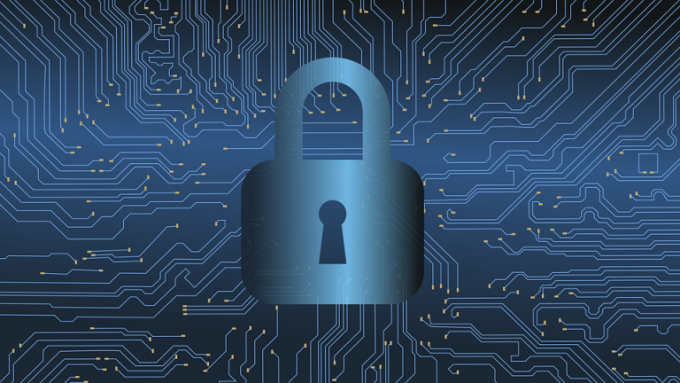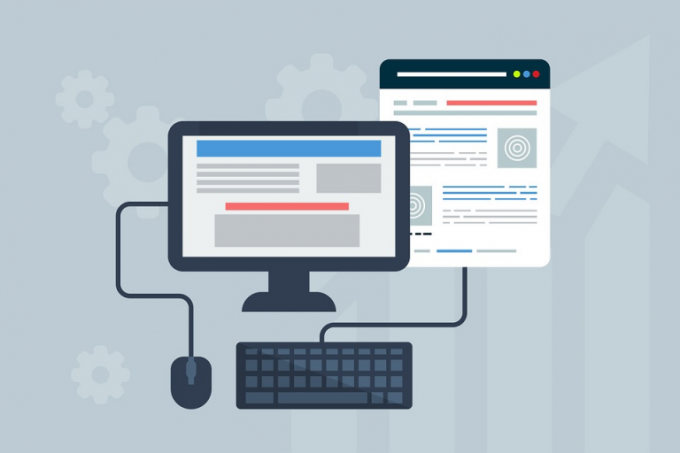If you run a business, you’ve probably heard about data protection at some point. All companies collect so much information about their customers every time they visit their website and you’ve got a lot of sensitive internal data about the company as well. You might not have thought that much about protecting that information before, especially if you’re just a small company, but it’s so important.
If you’re the victim of a cyber-attack, there’s a chance that you’re going to lose a lot of customer credit card information. That has such a big impact on your business because it’s up to you to call all of those customers and tell them that their accounts aren’t safe and they need to contact their bank. They’ll lose all trust in your business and they’re not going to deal with you again. These data losses are often very public as well, so you’ll find it hard to get new customers as well. Even if you manage the fallout of a cyber-attack properly, it’s still going to hurt your business a lot.
It’s not just customer data that you have to worry about either. If your business data is compromised, you are at risk of fraud and that could land you in a very difficult financial situation. There is also a risk of competitors trying to gain information about your future plans for the business. If your competitors know what your plans are, it’s easier for them to get ahead of you.
A lot of businesses don’t quite grasp just how important it is to manage and protect all of their data and it causes them a lot of problems. If you haven’t considered it before, these are some of the most important things that you need to do.
Only Keep What You Need
Whenever you’re interacting with a customer, data is stored about them. There are so many useful ways that you can use that data. It gives you an insight into who your customers are and what their purchasing habits are, which is very useful when you’re trying to create marketing campaigns, so you need to store a lot of it. But the more information you store, the more risk there is, that’s why you should only keep what you need. Instead of storing every piece of information, consider what you’re actually going to use it for. If you’re using data to help direct marketing campaigns or keep track of sales figures etc. that’s fine, but if it isn’t furthering your business in any way, you should delete it.
The same goes for any internal business information that you keep. Anything that is vital to business operations should be kept and protected properly but once you’re done with documents, you need to get rid of them. Digital documents should be deleted but don’t forget about the physical copies as well, they all need to be shredded in case of a break in.
Limit Data Access
The more different devices that information is accessed on, the higher the risk of data loss, that’s why you need to limit access amongst your employees. If company documents are passed around freely, it’s more likely that they’ll be lost by accident or stolen deliberately. Employees should only have access to information if it’s necessary for their job, and you need to be made aware of who is accessing what.
Use Information Management Software
Sometimes, businesses lose data because they’re the victim of a cyber attack. However, you can also lose data by accident because you’re not keeping track of it properly. The sheer amount of information that you hold about your business and customers makes it hard to stay on top of it and you can easily lose data. Intelligent information management is the best solution to this problem, but what is IIM? Intelligent information management refers to a system of different technologies and practices that you can use in combination to manage and protect your data. You can use cloud technology to share documents with employees and security software to protect data from cyber-attacks. Cloud technology gives people remote access to documents so they can work on the go, which is great for productivity. The problem is, when you’ve got lots of different devices accessing information, it’s hard to stay on top of it all, that’s where intelligent information management software comes in. You can use it to centralize all of those different data management systems so they work seamlessly together.
Choose The Right Web Hosting Service
Your website is a very important part of your marketing effort and it also collects a lot of data about your customers. Your website is a weak point that people will try to exploit if they’re trying to access your data so it’s important that you protect it properly. You should already be investing in a good IT team to manage your online security, but the problem is, if you don’t have a good website hosting service, you could still be at risk. When you’re trying to choose a hosting service, you should ask about the security measures that they have in place and how often they update them. As well as security risks, bad hosting services will cause problems with website loading times and reliability so it’s important that you find the right one.
Personal Devices
New technologies have changed the way that people work and employees are increasingly taking their work home with them or working on the go using their personal phones, tablets, and laptops. A lot of businesses are also employing more freelancers and remote workers. That’s good news for your business because it improves productivity but it does raise some questions about data security. When it comes to the computers in your office, you can make sure that they have up to date security software installed, but you can’t say the same for employee’s personal devices. That’s why you need to put strict policies in place about what information can be accessed on personal devices and taken out of the office and what can’t. You should also have your IT team check over any personal devices that people are using regularly to make sure that they have good security software installed.
Have A Data Breach Plan
Even if you’re taking all of the necessary precautions, that doesn’t mean that you’re completely safe from data breaches. It happens to some of the biggest companies in the world that have all of the most expensive security software in place so it could happen to you. There are always going to be consequences but you can limit the damage if you have a clear plan in place in the event of a data breach.
The first thing that you need to do is find the source of the breach and secure all of your computer networks. Once everything is secure and you’re sure that you’re not losing any more data, you need to work out exactly what data has been lost.
From there, your next step is to contact customers if they’ve been affected. It’s never going to be an easy conversation but they need to be made aware if their credit card information has been stolen. If you let them know in enough time, you can limit the damage.
After you’ve spoken with your customers, you need to start taking steps to protect yourself better in future. The only benefit of a breach is that it shows you where the weak points in your system are. Your IT team can fix those weaknesses so you’re not vulnerable in the future.
Data security is so difficult to manage but if you follow these steps to the letter, you can avoid any major disasters.








Leave a Reply